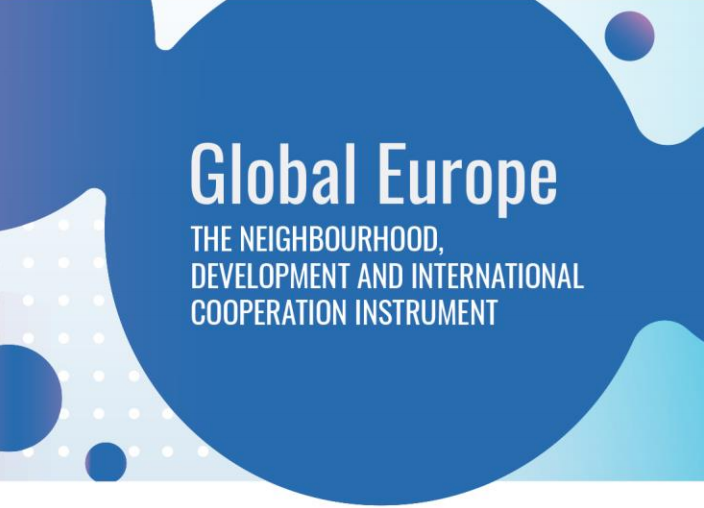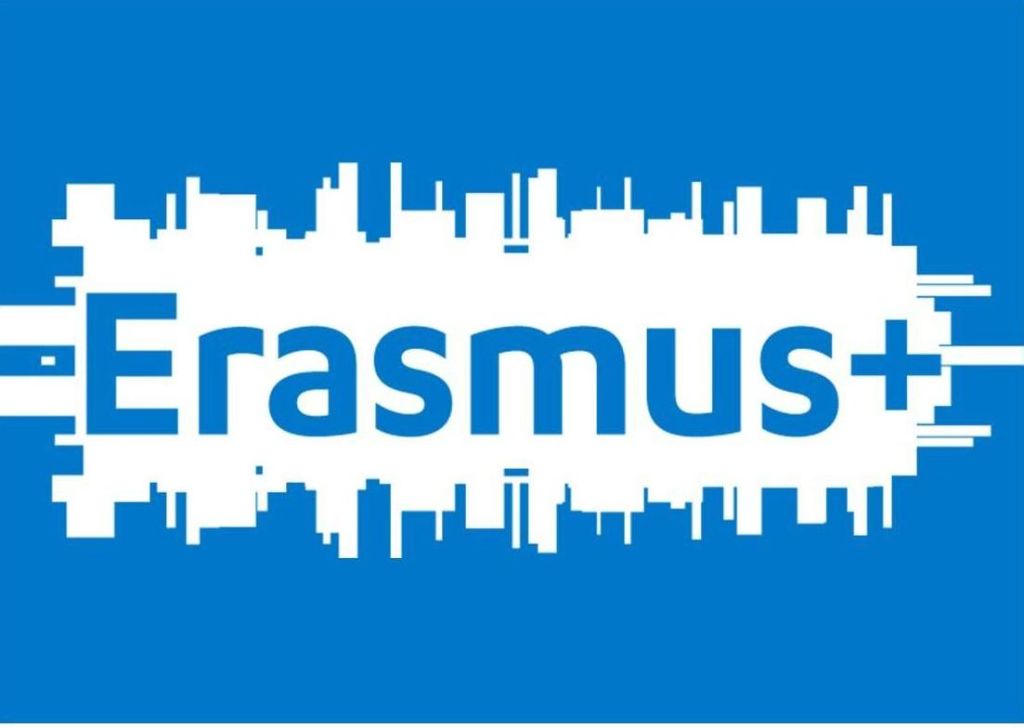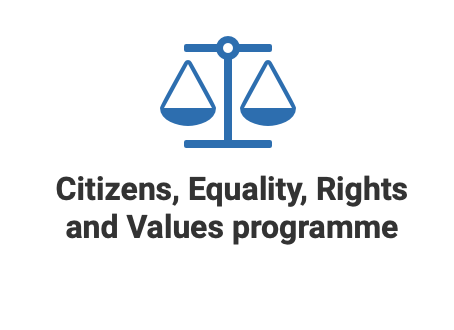ERASMUS+ (ERA+ | 2021-2027)
Erasmus+ is the EU's programme to support education, training, youth and sport in Europe. It is supp ...
Calls:
- 0 Closed Calls
- 0 Open Calls
- 0 Further Calls
-

SC - STAFF COST
CEB loans cannot cover staff costs (wages/salaries and other related benefits such as pension payments), financial charges and non-cash elements such as depreciation.
Such costs may however be considered eligible when they relate to project management or technical assistance required for project preparation and implementation.
-

MC - MATERIAL COST
All costs incurred in the course of production for raw materials, consumables and supplies are part of the material costs
-

PR - PublicRelation cost
in funded projects are required to execute various Dissemination and Communication activities with the aim of extending the impact of the project.
The Cost for Dissemination, Communication and Exploitation are PR-Cost.
-

OH - OVERHEAD COST
Indirect costs are general administrative costs – overhead costs incurred in connection with
the eligible direct costs of the action.
They are often limited to a percent flat-rate of the total eligible direct costs for the action.
Indirect costs are not eligible for an action where the beneficiary already receives an operating
grant from the EU budget during the period in question.
-

Management Cost
Management costs are personnel costs for internal personnel who do not work professionally, but carry out project management or the fees for external experts who also work in project management.
-

TC - TRAVEL COST
This budget category covers the travel costs and related subsistence allowances (including all related duties, taxes and charges that the beneficiary has paid, if including them is part of the usual practices for travel, e.g. non-deductible VAT) spent for the action.
Travel and subsistence costs relate to the personnel of the beneficiaries. They may also often relate to experts that participate in the action on an ad hoc basis.
-

external Experts
Any costs for external expertise and services provided by a public or private body or an individual outside of the beneficiary organisation belong in this cost category.
These rules also apply to costs for first level controllers where these are paid by the beneficiary. All external expertise and service payments must be made on the basis of contracts or similar written agreements and supported by invoices or requests for reimbursement linked to the tasks carried out.
-

Exquipment
in Horizon Europe:
What? This budget category covers the depreciation costs of equipment, infrastructure or other assets used for the action.
In some cases (e.g. infrastructure), equipment costs may also include the costs necessary to ensure that the asset is in good condition for its intended use (e.g. site preparation, delivery and handling, installation, etc.).
What not? If the beneficiary’s usual practice is to consider durable equipment costs (or some of them) as indirect costs, these can NOT be declared as direct costs, but are covered by the 25 % flat rate for indirect costs (see Article 6.2.E). Any depreciation declared as a direct cost under a H2020 action must be a direct cost under the beneficiary’s cost accounting practices (see Article 6.2.)
-

Preparation cost
Preparation costs are mostly the planning costs from the preliminary phase of the project, which are (partially in some funding instruments like INTERREG B) reimbursed retrospectively and mostly with a lump sum if the project is successful.
-

living expenses
cover the cost for living expenses during a visit or study for individual person, most as lump sum per month (stipendium).
-

Surveys
The preparatory surveys or studies (technical, economic or commercial, engineering, environmental and social impact assessment and management plans) the technical supervision of the project and other project related professional services.
-

Campaigns
Costs related to professional/vocational training and public awareness-raising campaigns may be eligible for CEB financing taking into account their objectives within the framework of the projects.
Used in CEB-Projects.
-

VAT
Non-deductible and non-refundable VAT and other tax-related costs non-deductible and non-refundable can be considered as eligible costs.
A value-added tax, known in some countries as a goods and services tax, is a type of tax that is assessed incrementally. It is levied on the price of a product or service at each stage of production, distribution, or sale to the end consumer.
-

OTHER COST
This includes other costs that cannot be directly subordinated to the main categories of normal project costs.
This budget category covers consumables, conferences and seminars, publications and dissemination, translation and other costs not covered in the previous categories.
The costs of consumables and supplies are eligible — if they are exclusively used for the project and identifiable as such in your accounts and if the purchasing rules were complied with (best value for money).
-
and 1 more
-

Apprentice / Trainee
a person who is learning a trade from a skilled employer, having agreed to work for a fixed period at low wages.
-

higher Education
Higher education is tertiary education leading to award of an academic degree. Higher education, also called post-secondary education, third-level or tertiary education, is an optional final stage of formal learning that occurs after completion of secondary education.
-

young People
Young people between the ages of 13 and 30.
-

Adults
People aged 18 and over
-

-

Trainee
A trainee in the German-speaking countries is a person who is undergoing vocational training. The training concludes with a journeyman's examination, skilled worker or with a final examination.
-

Youthworker
A Youth worker is a person that works with young people to facilitate their personal, social and educational development through informal education,
-

Learner
a person who is learning a subject or skill
-

Teacher
a person who teaches, especially in a school.
-

Citizen
Citizens are citizens of a state or a municipality. In the sense of constitutional law, nationals are "citizens"; at the municipal level, the "residents or residents" of a city or municipality are usually meant.
-

Student
A student is a person who is enrolled in an institution of the tertiary education sector and receives an academic training there or is undergoing further education at a university.
-

Entrepreneur
a person who attempts to make a profit by starting a company or by operating alone in the business world
-

vocational Student
Pupil who goes to vocational school
-

School pupil
The pupils of a school are the children who go to it
-
and 55 more
-

Highschool
University is the generic term for institutions in the tertiary education sector. A distinction is made between universities and equivalent universities, these are universities with the right to award doctorates and postdoctoral degrees (DE).
-

University
A University is a high-level educational institution in which students study for degrees and academic research is done.
-

Educational Institution
An educational institution is an institution that either has an original educational mandate in accordance with a state or local ordinance or is awarded an indirect educational mandate.
-

NGO - Non-governmental organization
A non-governmental organization or a non-governmental organization is a civil society-led interest group that is not legitimized by a public mandate.
‘NGO’ stands for non-governmental organisation. It is a useful shorthand term used to refer to a rangeof different organisations that typically share the following characteristics:
They are not created to generate profit.
-

Association
The association refers to a voluntary and long-term association of natural and / or legal persons for the purpose of a specific purpose, which is independent of the change of its members.
-

Environmental Organization
Environmental organizations are associations that are committed to protecting the environment in general, or dedicate them to special sub-areas or groups of organisms.
-

Environmental Authority
Environmentally relevant activities require an environmental authority (EA) (under the Environmental Protection Act 1994) to be issued before any activity can begin. An EA imposes conditions to reduce or avoid potential environmental impacts.
-

Professional Association
A group of people who work together in a single organization for a particular purpose.
-

Business Association
A business association is an organization founded and funded by businesses that operate in a specific industry.
-

Labor Union
An organized association of workers, often in a trade or profession, formed to protect and further their rights and interests; a trade union.
-

Platform
A raised level surface on which people or things can stand.
-

Cooperation
Cooperation is the process of groups of organisms working or acting together for common, mutual, or some underlying benefit, as opposed to working in competition for selfish benefit.
-

International Organisation
An international organization or intergovernmental organization is, in the sense of international law, an amalgamation of at least two states or other subjects of international law that is permanent, usually operates across national borders and fulfills supranational tasks. An essential feature of such an organization is that it has at least one body through which it acts.
-
.png)
Business support Organisation
Business support organizations are nonprofit, public and for-profit resource organizations that serve local businesses and support their growth and success. BSOs help client companies connect to talent, find co-working space, and test and validate business ideas.
-
and 65 more
 PR - PublicRelation costin funded projects are required to execute various Dissemination and Communication activities with the aim of extending the impact of the project. The Cost for Dissemination, Communication and Exploitation are PR-Cost.
PR - PublicRelation costin funded projects are required to execute various Dissemination and Communication activities with the aim of extending the impact of the project. The Cost for Dissemination, Communication and Exploitation are PR-Cost. external Experts
external Experts TrainingscostHere costs for further and advanced training are paid. Either as part of a project budget or directly by assuming these costs for training courses, further education or study visits.
TrainingscostHere costs for further and advanced training are paid. Either as part of a project budget or directly by assuming these costs for training courses, further education or study visits. CampaignsCosts related to professional/vocational training and public awareness-raising campaigns may be eligible for CEB financing taking into account their objectives within the framework of the projects. Used in CEB-Projects.
CampaignsCosts related to professional/vocational training and public awareness-raising campaigns may be eligible for CEB financing taking into account their objectives within the framework of the projects. Used in CEB-Projects. administrative costs
administrative costs EU Neighboursouthern and eastern neighbours of european union to promote peace, stability and economic
EU Neighboursouthern and eastern neighbours of european union to promote peace, stability and economic agriculture/food sector OrganisationA collection of all activities that facilitate the consumption and supply of food products and services across the world.
agriculture/food sector OrganisationA collection of all activities that facilitate the consumption and supply of food products and services across the world. higher EducationHigher education is tertiary education leading to award of an academic degree. Higher education, also called post-secondary education, third-level or tertiary education, is an optional final stage of formal learning that occurs after completion of secondary education.
higher EducationHigher education is tertiary education leading to award of an academic degree. Higher education, also called post-secondary education, third-level or tertiary education, is an optional final stage of formal learning that occurs after completion of secondary education. Education Institutions
Education Institutions national and european Authority
national and european Authority local and regional AuthorityA local or egional authority is an organization that is officially responsible for all the public services and facilities in a particular area.
local and regional AuthorityA local or egional authority is an organization that is officially responsible for all the public services and facilities in a particular area. Local CommunityA local community has been defined as a group of interacting people living in a common location.
Local CommunityA local community has been defined as a group of interacting people living in a common location. Disadvantaged YouthA disadvantaged Youth is defined as "an individual who is age 16 through 21 who received an income, or is a member of a family that received a total family income that, in relation to family size, does not exceed the higher of the poverty line, or 70 percent of the Lower Living Standard Income Level (LLSIL)."
Disadvantaged YouthA disadvantaged Youth is defined as "an individual who is age 16 through 21 who received an income, or is a member of a family that received a total family income that, in relation to family size, does not exceed the higher of the poverty line, or 70 percent of the Lower Living Standard Income Level (LLSIL)." PupilsStudents of all ages and all educational levels.
PupilsStudents of all ages and all educational levels. young PeopleYoung people between the ages of 13 and 30.
young PeopleYoung people between the ages of 13 and 30. AdultsPeople aged 18 and over
AdultsPeople aged 18 and over TraineeA trainee in the German-speaking countries is a person who is undergoing vocational training. The training concludes with a journeyman's examination, skilled worker or with a final examination.
TraineeA trainee in the German-speaking countries is a person who is undergoing vocational training. The training concludes with a journeyman's examination, skilled worker or with a final examination. ProfessionalIs a collective name for people who have specialized in a specialist area and who, in contrast to the general public, have specialist knowledge.
ProfessionalIs a collective name for people who have specialized in a specialist area and who, in contrast to the general public, have specialist knowledge. YouthworkerA Youth worker is a person that works with young people to facilitate their personal, social and educational development through informal education,
YouthworkerA Youth worker is a person that works with young people to facilitate their personal, social and educational development through informal education, public AdministrationsA public administration, also called administrative, is the activity of the state or another local authority district of public administration that is neither legislation nor jurisdiction, nor carries out political government activities.
public AdministrationsA public administration, also called administrative, is the activity of the state or another local authority district of public administration that is neither legislation nor jurisdiction, nor carries out political government activities.




